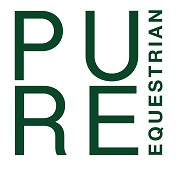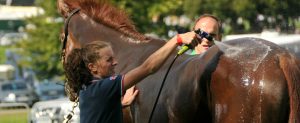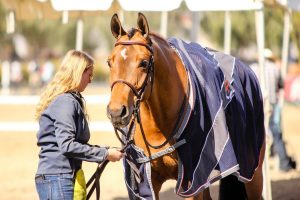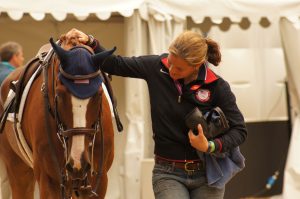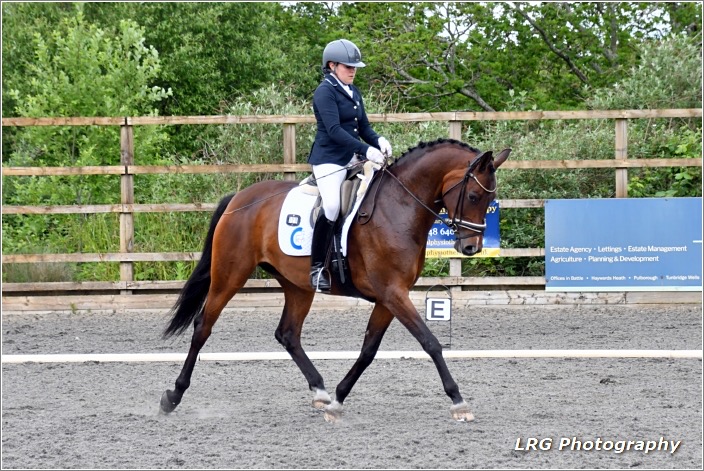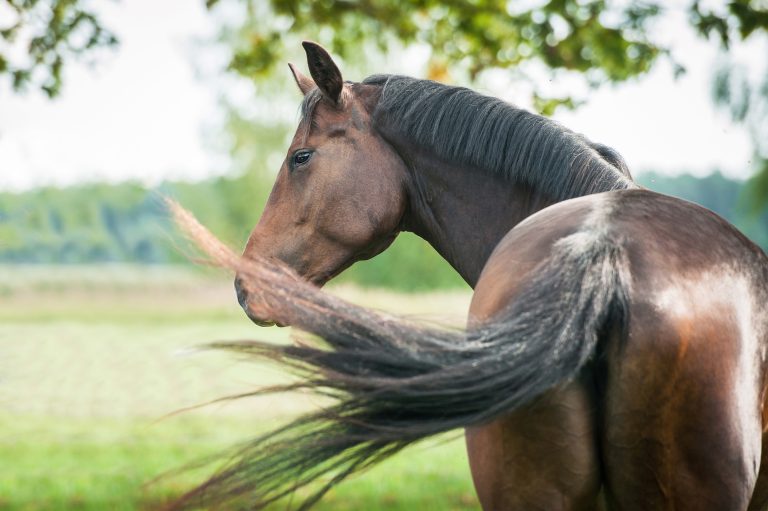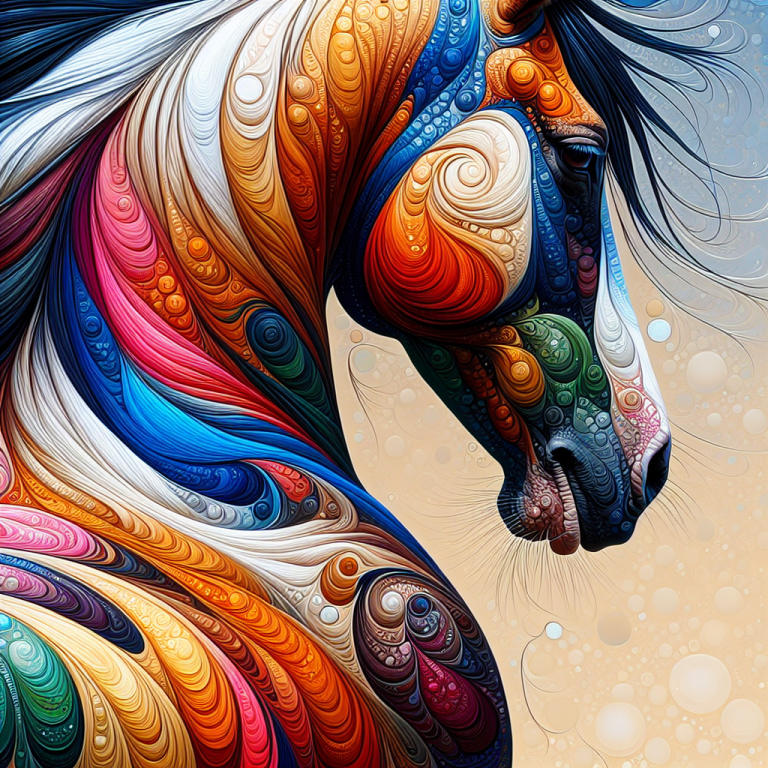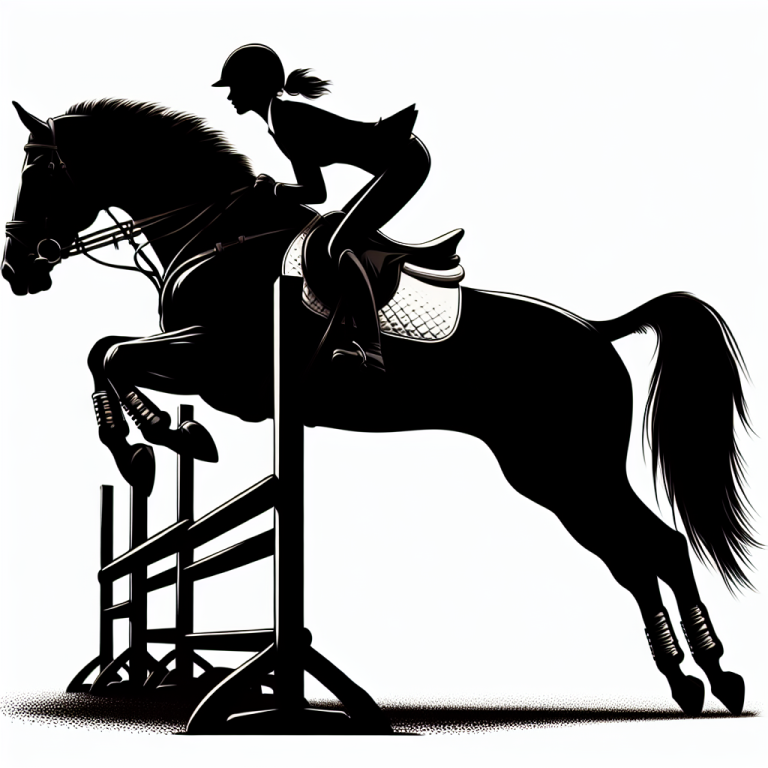Have you ever wondered about the important role of a showjumping groom in preparing horses for competition? Showjumping is a high-intensity equestrian sport that requires careful preparation and teamwork. The showjumping groom is the behind-the-scenes hero who ensures that the horses are in top physical condition, mentally focused, and perfectly groomed. From daily care routines to attending to the tiniest details, the showjumping groom plays a vital role in ensuring the success of the rider and horse duo on the competition stage. So, let’s take a closer look at the essential responsibilities and skills of these dedicated professionals.
Table of Contents
ToggleRole of a Showjumping Groom
As a showjumping groom, your primary responsibility is to ensure the well-being and performance readiness of the horses under your care. You play a vital role in supporting the rider by taking care of the horse’s physical and mental needs. Your duties encompass various aspects, including maintaining the horse’s health, grooming and appearance, feeding and nutrition, tack and equipment preparation, exercise and fitness regimen, organisation and logistics, pre-competition preparation, during competition support, post-competition responsibilities, specialised showjumping groom duties, interacting with trainers and riders, safety and emergency response, providing horse comfort and well-being, and career development and education.
Maintaining Horse’s Health
Maintaining the horse’s health is fundamental to their performance in showjumping competitions. You are responsible for implementing a comprehensive healthcare routine that includes regular veterinary check-ups, vaccinations, deworming, and dental care. Monitoring the horse’s vital signs, such as temperature, pulse, and respiration, is crucial for identifying any potential health issues. As a showjumping groom, you should be familiar with common equine ailments and understand how to administer basic first aid.
Grooming and Appearance
Grooming not only enhances the horse’s appearance but also promotes their physical and mental well-being. Regular grooming sessions allow you to inspect the horse’s skin for any cuts, swelling, or skin conditions. You will clean and maintain the horse’s coat, mane, and tail, ensuring they are free from dirt, tangles, and debris. Additionally, grooming provides an opportunity for bonding with the horse, fostering trust and relaxation.
Feeding and Nutrition
Proper nutrition is essential for maintaining the horse’s energy levels and optimal health. You will work closely with the stable’s nutritionist or veterinarian to create a balanced diet tailored to each horse’s specific needs. Monitoring their daily feed intake, ensuring access to fresh water, and providing appropriate supplements are vital aspects of your role. A well-nourished horse will have the strength and stamina necessary for successful showjumping performances.
Tack and Equipment Preparation
As a showjumping groom, you will be responsible for properly fitting and maintaining the horse’s tack and equipment. This includes saddles, bridles, bits, boots, and any other gear necessary for showjumping. Regular inspections and cleanings ensure that the tack remains in good condition, minimising the risk of discomfort or injury to the horse. You will also assist with adjusting and fitting the equipment to ensure the horse’s comfort and optimal performance.
Exercise and Fitness Regimen
Creating and implementing an exercise and fitness regimen is crucial for preparing showjumping horses for competition. Showjumpers require a combination of cardiovascular fitness, strength, and agility. You will work closely with the trainer to develop a training plan that includes a mix of flatwork, jumping exercises, and conditioning work. Monitoring the horse’s fitness progression and adapting the regimen accordingly will contribute to their peak performance during competitions.
Organisation and Logistics
Stable Management
Effective stable management is essential for maintaining a safe, clean, and organised environment for the horses. You will oversee daily routines such as feeding, turnout, stall cleaning, and maintaining bedding. Keeping the stable well-ventilated, properly lit, and free from hazards is crucial for the horses’ comfort and well-being.
Scheduling and Time Management
As a showjumping groom, you will play a key role in managing the schedule, ensuring that horses are ready for training sessions, competitions, and veterinary appointments. Efficient time management is critical to ensuring that each horse receives the necessary care and attention. Prioritising tasks and maintaining clear communication with the trainer and riders will help streamline the daily operations.
Travel and Accommodation
When the showjumping team travels to competitions, you will be responsible for coordinating the logistics of horse transportation, including booking appropriate trailers or vans and ensuring the horses’ comfort during travel. Additionally, arranging accommodations for both the horses and the team members is part of your role. This includes finding suitable stabling facilities and securing accommodations for the riders, ensuring they have a comfortable and convenient base during competitions.
Competition Entries and Paperwork
Handling competition entries and paperwork is an essential administrative task for showjumping grooms. This involves submitting entry forms, providing documentation such as passports and vaccination records, and ensuring compliance with competition regulations. Attention to detail and timely submission of paperwork will help guarantee a smooth entry into competitions and avoid any unnecessary complications.
Pre-Competition Preparation
Foot Care and Shoeing
Proper foot care is critical for the showjumping horse’s performance and soundness. You will work closely with farriers to ensure the horse’s hooves are properly trimmed and shoed. Regular inspections and scheduling timely appointments for shoeing or corrective work will contribute to the horse’s comfort and stability while jumping.
Warm-Up Routines
Developing effective warm-up routines is vital to preparing the horses for optimal performance in competitions. You will create tailored warm-up exercises that focus on stretching, suppleness, and focus. These exercises help to loosen the horse’s muscles, prepare them mentally for the demands of the competition, and establish a positive rider-horse connection.
Course Familiarisation
Before the start of a competition, you will assist the rider in familiarising themselves with the course. This involves walking the course together, discussing the various elements such as jump heights, distances, and related technical challenges. By analysing the course layout and strategizing, you can help the rider approach each jump with confidence and skill.
Mental and Physical Conditioning
Ensuring the horse is in peak mental and physical condition is crucial for successful showjumping performances. You will work closely with the trainer to implement various conditioning exercises that enhance the horse’s strength, flexibility, and agility. Mental conditioning exercises, such as desensitisation and exposure to different environments, also contribute to the horse’s confidence and focus.
During Competition Support
Saddle and Bridle Fitting
During competition, it is critical to ensure that the horse’s saddle and bridle fit properly and comfortably. You will be responsible for checking and adjusting the equipment as needed, assisting the rider in achieving the best fit for optimal performance. This includes ensuring proper padding, correct bit placement, and secure attachment of all straps and buckles.
Warm-Up Assistance
As a showjumping groom, you will provide valuable warm-up assistance to the rider. This includes preparing the horse for warm-up sessions, allowing the rider to focus on mental preparation. You may be responsible for implementing specific exercises, helping set jumps, adjusting stride distances, and offering support and guidance throughout the warm-up process.
Course Walks and Strategy
Before each competition round, you will accompany the rider on course walks to analyse the track and discuss potential strategies. Understanding the technical challenges of each jump and identifying the most efficient lines will help the rider navigate the course successfully. Your input and collaboration with the rider can provide valuable insight and contribute to an effective competition strategy.
Rider Support
During competitions, showjumping grooms provide essential support to the rider both in and out of the arena. This includes helping with equipment changes, providing encouragement and feedback, and assisting the rider in maintaining focus and confidence. Your presence and support throughout the competition contributed to a positive and successful performance.
Post-Competition Responsibilities
Cooling Down and Recovery
After each competition round, it is essential to ensure the horse undergoes a proper cool-down and recovery process. You will lead the horse through gentle exercises, such as walking or light trotting, to help them gradually lower their heart rate and cool down their muscles. Paying attention to the horse’s breathing and overall demeanour allows you to identify any signs of fatigue or discomfort.
Tack Cleaning and Maintenance
Proper cleaning and maintenance of the tack is essential to prolong its lifespan and prevent discomfort or injury to the horse. As a showjumping groom, you will be responsible for promptly cleaning and maintaining all the equipment used during competitions. Thoroughly inspecting and caring for the tack helps ensure its functionality and longevity.
Assisting with Veterinary Care
Supporting the horse’s health and well-being also involves assisting with veterinary care post-competition. This may include administering any prescribed medication or treatments, monitoring the horse’s recovery progress, and communicating any concerns or observations to the veterinarian. Your role as a showjumping groom includes being an advocate for the horse’s ongoing veterinary needs.
Assisting with Horse Transportation
After a competition, proper horse transportation is essential to ensure their safe return to the stable. You may assist in coordinating the logistics of transportation, ensuring the horse is loaded correctly, and ensuring their comfort during the journey. Paying careful attention to details such as tying up hay nets, providing fresh water, and securing appropriate ventilation is crucial for the horse’s well-being throughout transit.
Specialised Showjumping Groom Duties
Jump and Fence Building
Some showjumping grooms may have specialised skills in jump and fence building. This involves constructing and setting up jumps and fences according to the specific requirements and regulations of the competition. A keen understanding of jump construction, materials, and safety measures is vital to creating a challenging and safe course.
Arena Maintenance
Maintaining the showjumping arena is another specialised duty that some grooms may undertake. This includes regular grooming of the footing, ensuring the jumps are in the correct positions, and inspecting the arena for any potential hazards or damage. Proper maintenance of the arena contributes to the safety and performance of both the horse and rider.
Medication Administration
In some cases, showjumping grooms may be responsible for administering prescribed medications or supplements to the horses under their care. This requires a thorough understanding of medication dosages, administration methods, and withdrawal periods to ensure compliance with competition regulations and the horse’s well-being.
Lunging and Groundwork
Lunging and groundwork exercises can be valuable components of a showjumping horse’s training programme. Showjumping grooms who specialise in lunging and groundwork may assist with implementing these exercises. This involves understanding proper lunging techniques, groundwork exercises to improve balance and suppleness, and adapting these exercises to suit each horse’s individual needs.
Interacting with Trainers and Riders
Communication and Feedback
Clear and effective communication with trainers and riders is essential for providing the best care and support to showjumping horses. Actively listening to feedback and sharing relevant information and observations contribute to a collaborative working environment. Effective communication also allows for adjustments in training or management routines based on the horse’s performance and well-being.
Collaboration and Coordination
As a showjumping groom, you will collaborate closely with trainers and riders to ensure the horses’ needs are met. This involves coordinating training schedules, discussing strategies, and sharing responsibilities. Your ability to work collaboratively and coordinate with the team contributes to a cohesive and successful showjumping programme.
Assisting with Training Sessions
During training sessions, you may be called upon to assist trainers and riders in various capacities. This can include setting jumps, arranging obstacles, timing exercises, and providing feedback on the horse’s performance. Your expertise and support during training contribute to the overall development of the horse’s skills and abilities.
Observing and Reporting
As a showjumping groom, you will have the opportunity to closely observe the horse’s behaviour, movement, and overall well-being. This provides valuable insight into their physical and mental state. Reporting any concerns or observations to the trainer or rider enables appropriate adjustments to training or management routines and ensures the horse’s ongoing well-being.
Safety and Emergency Response
Identifying Safety Hazards
Maintaining a safe environment is paramount in the showjumping industry. As a showjumping groom, you will be responsible for identifying and addressing any safety hazards within the stable, arena, or competition venues. This includes promptly reporting any damaged equipment, unsafe footing, or potential hazards that could jeopardise the horse’s well-being or performance.
Equine First Aid
Having a basic knowledge of equine first aid is crucial for showjumping grooms. You should be able to identify common injuries, apply basic first aid techniques, and provide initial treatment until veterinary assistance is available. This may include cleaning wounds, bandaging, administering basic medications, and managing emergency situations until professional help arrives.
Emergency Evacuation Procedures
In the event of an emergency, such as a fire or natural disaster, your priority is to ensure the safety and well-being of the horses. As a showjumping groom, you will be responsible for familiarising yourself with and implementing emergency evacuation procedures. This may involve coordinating safe routes of escape, securing the horses, and communicating with emergency personnel.
Access to Veterinary Services
Ensuring access to veterinary services is crucial for the overall health and well-being of showjumping horses. You will be responsible for establishing relationships with local veterinarians and ensuring their availability during competitions. Knowledge of emergency veterinary clinics and services in the area is essential for prompt and appropriate care when needed.
Providing Horse Comfort and Well-being
Bedding and Stall Maintenance
Maintaining clean and comfortable bedding is essential for the horse’s well-being. As a showjumping groom, you will be responsible for regularly cleaning and bedding stalls, ensuring they are free from waste, and providing fresh bedding material. Clean and well-maintained stalls contribute to the horse’s comfort and help prevent respiratory and hoof issues.
Watering and Feeding
Providing access to clean, fresh water at all times is crucial for the horse’s health and well-being. As a showjumping groom, you will ensure the horses have a continuous supply of water in their stalls and during transportation. Monitoring their water intake and promptly addressing any issues or changes is part of your responsibility. Additionally, you will ensure the horses receive their daily feedings according to their specific dietary requirements.
Turnout and Exercise
Allowing the horses regular turnout time is essential for their physical and mental well-being. You will coordinate and monitor turnout schedules, ensuring the horses have ample time to stretch their legs, graze, and interact with other horses in a safe and controlled environment. Regular exercise and free movement contribute to the overall happiness and health of the showjumping horses.
Monitoring and Socialisation
As a showjumping groom, you will spend a significant amount of time with the horses, monitoring their behaviour, and assessing their needs. Social interaction and companionship are important for the horse’s mental well-being. You will provide opportunities for the horses to interact with other horses and ensure they have a stimulating and enriching environment that promotes their overall happiness.
Career Development and Education
Continuing Education Opportunities
Showjumping grooms have the opportunity to expand their knowledge and skills through continuing education programmes. This can include attending seminars, workshops, or conferences focused on equine care, riding techniques, or stable management. Continuing education allows showjumping grooms to stay updated on the latest industry advancements and helps enhance their professional development.
Professional Development
Professional development is essential for career advancement as a showjumping groom. This can involve pursuing certifications or degrees in equine studies, stable management, or related fields. Showjumping grooms can also seek out mentorship opportunities with experienced trainers or groom professionals to further develop their skills and knowledge.
Networking and Industry Involvement
Building a strong professional network within the showjumping community can provide valuable career opportunities and support. Attending industry events, joining professional associations, and engaging in online communities allow showjumping grooms to meet fellow professionals, exchange knowledge, and stay connected to the latest industry trends.
Mentoring and Apprenticeships
Mentoring and apprenticeship opportunities offer showjumping grooms the chance to learn from experienced professionals in a practical setting. Working closely with established trainers or grooms allows for hands-on experience, fosters skill development, and promotes personal growth. Mentoring and apprenticeships provide valuable guidance and support for those entering the showjumping groom profession.
In conclusion, the role of a showjumping groom is multifaceted and crucial to the success and well-being of showjumping horses. From maintaining their health and appearance to assisting with pre-competition preparations and providing support during competitions, showjumping grooms play a vital role in ensuring the horses are physically and mentally ready for optimal performance. In addition to their daily responsibilities, showjumping grooms are also involved in various specialised duties, interacting with trainers and riders, addressing safety and emergency issues, and providing comfort and well-being to the horses. Continuous career development and education opportunities further enhance their skills and knowledge, making them invaluable members of the showjumping team.
